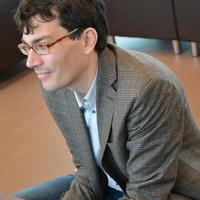Collection
The Philosophy of Effort
- Submission status
- Open
- Open for submission from
- 20 March 2024
- Submission deadline
- 15 October 2024
We make efforts to lift heavy weights, to solve problems, to concentrate, to stop smoking, to climb mountains, to convince others, to stay calm, to understand obscure texts, to conceal our vices, to resist temptations, to gather information, to earn money, to overcome our shyness, to win games, etc. Not only do we make efforts, we also value efforts in various ways: we deem them unpleasant, praiseworthy, efficient, vain, irrational, tenacious, etc. Effort is a central concept not only of our ordinary psychology and ethics, but also of many sciences: efforts are recurrently invoked in psychology, economics, sociology, law, or philosophy. Recent years have seen much progress in our understanding of the nature of effort and its implications for philosophical debate. Consequently, the study of effort has seen a marked increase in attention. This special issue seeks to provide an entrypoint to the debate by bundling effort research in metaphysics, ethics, the philosophy of mind, action and cognitive science. All paper submissions engaging with contemporary issues in the study of effort are welcome.
Topics for Submission:
The issue will contain a selection of invited contributions by prominent voices in the philosophical debate, and will be open to submitted contributions focusing on any investigation of efforts. A non-exhaustive list of topics is the following:
- What unifies disparate forms of efforts?
In what relation do feelings of effort and the making of efforts stand?
What unifies feelings of cognitive and physical efforts?
Why do we sometimes value efforts despite their aversive phenomenological profile?
What is the biological function of effort?
What role do efforts play in the cognitive architecture of human agency?
How can joint entities, such as groups or corporations, make efforts?
How do efforts relate to the phenomenon of weakness of will?
What is the moral significance of efforts?
How do efforts relate to difficulty?
Why do we consider some efforts achievements?
Can artificial intelligence systems make efforts?
Submission Process
All papers will be subject to double-blind peer-review, following international standard practices. Each submission will be peer-reviewed by no less than two referees. To submit, go to Synthese’s website.
Format:
Articles should be submitted in LaTex or Word format. Synthese does not impose a strict word limit, but publishes works that typically does not exceed 30 pages. Articles in Synthese must engage with contemporary debates: purely historical work will not be considered for publication.
Deadline for manuscript submission: 15th October 2024
To submit to the topical collection, register your name and email address under www.editorialmanager.com/synt. When selecting the “Submit New Manuscript” option, you will be prompted to choose a article type. Choose the topical collection “The Philosophy of Effort” in the drop down.
For further information, please contact: Malte Hendrickx (hmalte@umich.edu)
Editors
-
Malte Hendrickx
Malte holds a B.A. in Philosophy and Economics from Mannheim University and a M.A. in Philosophy from Tübingen University. His main interests are in Mind & Morality, especially Action, Control & Moral Psychology. He is particularly interested in intersections of these topics with research in Cognitive Science and Economics. He is a member of Giving What We Can; Effective Altruism; Philosophy of Neuroscience Group @CIN and the Network for Constitutional Economics. He receives an Adam Smith Fellowship from the Mercatus Center.
-
Juan Pablo Bermúdez
I am a philosopher and cognitive scientist working on the issue of control: How do we exert control over our actions? What are the limits of that control? And what are the ethical and political implications of our limitations, as they intersect with social contexts and new technologies? I have been visiting scholar at the University of Oxford, the University of Pittsburgh’s Center for Philosophy of Science, and Universidad de los Andes (Colombia). Currently I am docente investigador [assistant professor] at Externado de Colombia University, Postdoctoral Researcher at TU Delft
-
Olivier Masssin
Full professor of general philosophy at Université de Neuchâtel & institute director Institute of Philosophy




